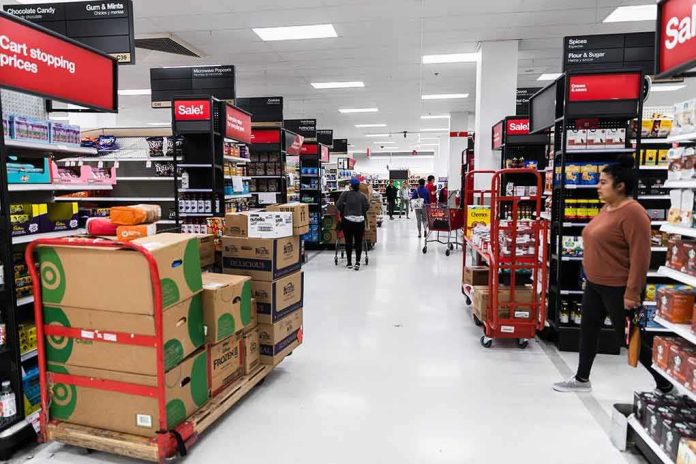
Viral TikTok videos show SNAP recipients threatening to steal groceries if benefits are reduced, revealing how government dependency programs may inadvertently foster lawless attitudes when entitlements face cuts.
Story Overview
- SNAP recipients posted threatening videos on TikTok about looting stores if food stamp benefits are cut
- One user explicitly described plans to steal from Walmart without paying
- The threats emerged amid discussions about potential SNAP benefit reductions on November 1st
- The videos highlight concerning attitudes about entitlement to government assistance
When Entitlement Meets Reality
The threatening videos emerged as federal legislators debated potential reductions to SNAP benefits. Rather than discussing alternative solutions like job training, budgeting assistance, or community support networks, some recipients immediately turned to criminal threats. This reaction suggests a troubling disconnect between personal responsibility and government assistance programs that were designed as temporary safety nets, not permanent lifestyle subsidies.
The Psychology of Dependency
These viral outbursts reveal how long-term reliance on government programs can create psychological dependency that extends beyond mere financial need. When individuals view government benefits as guaranteed income rather than emergency assistance, any threat to that income triggers defensive reactions typically reserved for protecting personal property. This mindset transformation represents a fundamental shift from gratitude for temporary help to aggressive demands for permanent support.
The language used in these videos particularly concerning, with explicit threats of theft presented as justified responses to policy changes. This suggests that some recipients have internalized the belief that society owes them specific living standards, regardless of economic realities or taxpayer burden. Such attitudes undermine the foundational American principles of self-reliance and personal accountability that built our nation’s prosperity.
Economic Realities Behind SNAP Reform
SNAP program costs have ballooned significantly in recent years, creating legitimate concerns about fiscal sustainability and program effectiveness. Taxpayers fund these benefits through their hard work, expecting the programs to help people transition toward independence rather than create permanent dependency. When recipients respond to reform discussions with theft threats, they inadvertently strengthen arguments for stricter program oversight and work requirements.
The November 1st date referenced in these videos likely relates to the expiration of pandemic-era SNAP benefit increases, which were always intended as temporary measures. Returning to pre-pandemic benefit levels represents normal policy adjustment, not an attack on vulnerable populations. However, the threatening responses suggest that temporary emergency increases became viewed as permanent entitlements by some recipients.
Broader Implications for Social Policy
These incidents raise fundamental questions about how government assistance programs should operate in a free society. Effective social safety nets should encourage personal growth, skill development, and eventual independence while providing necessary temporary support. When programs instead foster attitudes of permanent entitlement backed by criminal threats, they fail both recipients and taxpayers who fund them.
The viral nature of these threatening videos also demonstrates how social media platforms can amplify destructive attitudes and potentially coordinate illegal activities. Law enforcement agencies now face the challenging task of determining whether these constitute credible threats requiring investigation or merely emotional outbursts from frustrated individuals facing benefit reductions they never expected to experience.



